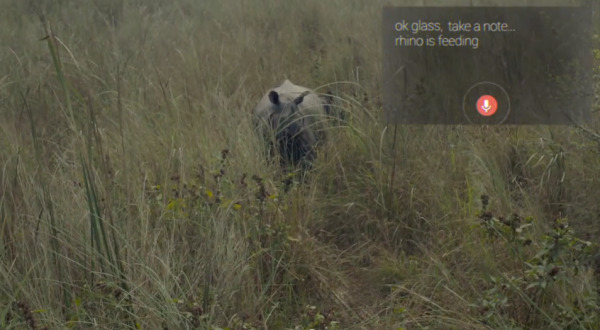Can Google defuse anti-Glass anger with WWF worthiness?
Can Google defuse growing anti-Glass feelings by showing worthwhile uses like animal conservation? That's the question lingering around Glass' Earth Day 2014 video, a look at how one Glass Explorer from the World Wildlife Fund is using the wearable computer on projects in Nepal
Glass user Sabita Malla has been relying on the headset to help with a project monitoring rhino numbers in the wild, taking advantage of the tech's voice recognition system to log sightings and movements of the endangered animals.

According to Malla, Glass effectively cuts the work in half. Previously, all of the records would be completed by hand, and then subsequently transferred into the database. With Glass, however, that can be streamlined.
It's not the first time we've seen Google and the WWF working together. Back in 2012, Google.org – the search giant's charitable arm, which gives out grants to social and environmental projects around the world – gave the organization a $5m grant to spend on new ways to protect endangered and vulnerable species.
The WWF will now be one of a group of judges for Google's "Giving through Glass" project – along with Samasource and DoSomething.org – which will give five teams a nonprofit grant, a set of Glass, training, and access to developers to create Glassware which will help US-based schemes. Proposals for that need to be in by May 20th, and need to explain how the wearable will "amplify the organization's impact."
Google's push to frame Glass in charitable terms comes as reports of anti-wearable sentiment grow. Several Glass Explorers have been challenged or even assaulted in public, after their use of the technology was seen as threatening the privacy of others, flaunting their wealth, or generally a point of ridicule.
